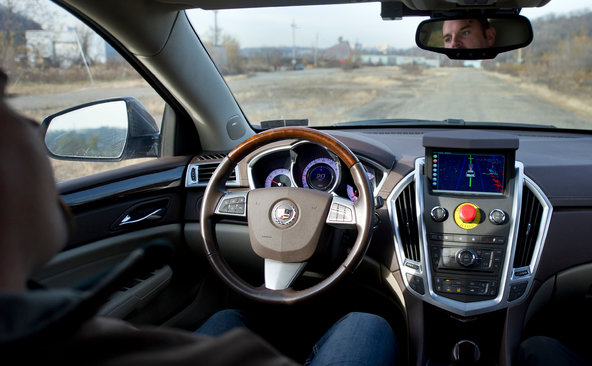 NEWS
NEWS
 NEWS
NEWS
 NEWS
NEWS
![]() There’s been a lot of talk about the potential benefits of so-called ‘driverless’ cars of the type that Google is working on, but much less has been said about the other ways in which smart cars might ‘drive’ a revolution in road transportation.
There’s been a lot of talk about the potential benefits of so-called ‘driverless’ cars of the type that Google is working on, but much less has been said about the other ways in which smart cars might ‘drive’ a revolution in road transportation.
Previous research has shown that we could make serious inroads into the 30,000 road deaths recorded in the US each year, even if cars are only partially automated. Vehicles equipped with “forward-collision warning systems” that automatically apply the brakes have far fewer accidents than those that don’t, according to a number of studies.
With more than 1.2 million people worldwide killed on the roads each year, the development of smart cars that can reduce this figure is a worthy cause. But a reduction in road deaths is not the only benefit that a future with driverless cars will deliver, as Will Knight outlines today in Technology Review:
As stunning as these benefits may be, it could be years before we reach the point where fully-automated vehicles dominate our roads. One major challenge noted by Knight is the need for human intervention if and when the smart car’s sensors/systems break down – people could easily be lulled into a false sense of security, and unable to react in time to avert disaster.
In other words, until driverless cars are totally and utterly as reliable as can be – for instance, as safe as airplanes on auto-pilot – few people are going to want to entrust their lives to them.
Support our mission to keep content open and free by engaging with theCUBE community. Join theCUBE’s Alumni Trust Network, where technology leaders connect, share intelligence and create opportunities.
Founded by tech visionaries John Furrier and Dave Vellante, SiliconANGLE Media has built a dynamic ecosystem of industry-leading digital media brands that reach 15+ million elite tech professionals. Our new proprietary theCUBE AI Video Cloud is breaking ground in audience interaction, leveraging theCUBEai.com neural network to help technology companies make data-driven decisions and stay at the forefront of industry conversations.